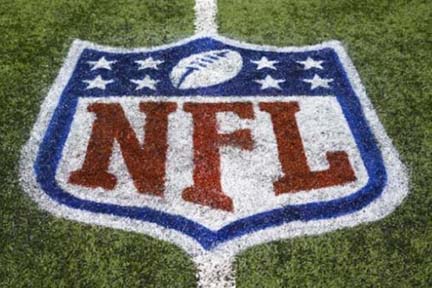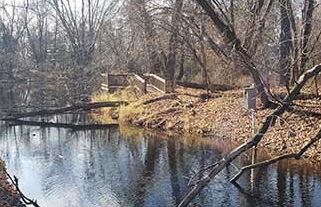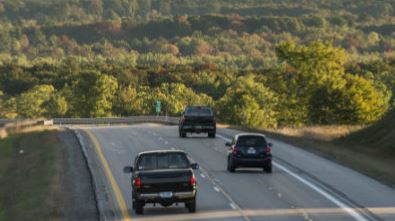
by Becky Andrus | Mar 28, 2022 | Feature Writers, High School Sports
This is a blog that is devoted to the OAA. We cover 23 schools from Oakland County to Wayne County. From Oxford to Harper Woods. This blog will give insight and projections around the OAA.
Friday, March 25, 2022
Boys Basketball Shortcomings.
Written Friday March 25th at 8:00 PM
Written by Sammy Taormina

With the Boys Basketball season over here are the shortcomings for each program heading into the offseason.
Ferndale: It was a great season for the Eagles. Ferndale won the Red and made the final four for the second straight season. They earned their third straight district title by beating Birmingham Detroit Country Day. The Eagles earned the regional crown on their home floor and beat Detroit Henry Ford and Detroit Pershing in the process. They beat Pontiac Notre Dame Prep in the State Quarterfinals and earned a rematch with defending Division Two State Champions Grand Rapids Catholic Central. The Cougars beat the Eagles last season in the State Semifinals. Ferndale fell to Grand Rapids Catholic Central in the Division Two State Semifinals for the second straight year. The Eagles will be in a very interesting spot this offseason. Ferndale despite winning 21 games this season seem to have trouble when they play teams that are as athletically talented as them but with proven experience and deeper. It has been evident in most of their losses and especially to Grand Rapids Catholic Central in both postseason meetings. They lose Treyvon Lewis and Justin Drake to graduation. The Eagles have Cameron Reed, Chris Williams, Jacoby Jackson, Caleb Renfroe, Maurice Booth, and Trenton Booth coming back for Coach Juan Rickman. Program strength will be very interesting this offseason. Ferndale should be back in the mix next season Program strength and overcoming teams that are athletically talented with experience and deeper than them will be something to watch.
North Farmington: It was a great season for the Raiders which saw more positives than negatives. They won a district crown by beating Redford Thurston and Livonia Stevenson on their home floor. It was going to be a very tough task for North Farmington in the regional semifinals going up against a very good Orchard Lake St. Marys program but the Raiders battled despite falling by two points to the Eaglets. North Farmington has been one of the most consistent programs when it comes to program strength. The Raiders won 18 games this season and their sub varsities won double digit games as well. They lose Amari Lee, Jared Frazier, Aaron Rice, Donovan Hayes, Blake Ingram, and Wylan Hall to graduation. North Farmington has Prince Jackson, Vincent Lee, Lee Hardy, Connor Childress, Daemon Eubanks, Lamar Walls, Dwayne Ray, Donovan Williams, Tyler Spratt, Landon Williams, and Ryan Hurst coming back for Coach Todd Negoshian. The Raiders are built for the now and the future. They should be very good next season.
Oak Park: It was a great year for the Knights. They had another strong showing in the Red and the regular season but it’s clear that they have a problem when they play their Catholic League Central rival to the southeast in Detroit University-Detroit Jesuit in districts. Oak Park fell to the Cubs for the second straight year in the district finals (fell in double overtime in the district semifinals last season.) The Knights won 15 games this season. They lose Ashton Henderson, Bwana Miller, and Derald Blackmon to graduation. Oak Park has Jason Harns, Robert Smith, Geno Hutchins, Kevin Tolliver, Soloman Willie, and LuJuan Holliday coming back for Coach Durand Sheppard. Program strength should be very interesting. They have lot of young talent coming back but the sub varsities are a question mark. The Knights should be in a great place heading into the offseason but if I were Sheppard, I would seriously consider playing Detroit University-Detroit Jesuit in a non league game next season.
Adams: It was a very interesting season for the Highlanders in which they saw a ton of peaks and valleys. Adams won their first district crown in a long while with postseason wins over Rochester and Lake Orion. The Highlanders fell to Clarkston in the regional semifinals. Adams won 15 games this season. They lose Gunner Walters, Justice Mims, Jon Urusy, Jacob Durand, Teddy LaGarde, Tyler Barbee, and Tre Tuppins to graduation. The Highlanders have Brady Prieskorn, Nathan Kim, Peter Kardasis, Thomas Blaine, Drew Blackmer, and Jack Donohoe coming back for Coach Jaret Thomas. Program strength is very strong for the Highlanders and they’ll need a lot of that with one returning starter next season. Adams is a up and coming program. They have everything in place to be very good now and into the future.
Clarkston: It was a very odd season which was very un Clarkston like. The Wolves added another district crown after beating Avondale in the district semifinals and Waterford Mott in the district finals. They avenged Adams in the regional semifinals after the Highlanders beat them twice in the regular season. Clarkston fell to a very good Novi Detroit Catholic Central program in the regional finals. The Wolves won 14 games this season. They lose seven seniors including Keegan Wasilk, Nate Steinman, Zach Austin, Caleb Woodberry, Bryce Jacob, Jacob Beck, and Kaden Dietlin to graduation. Clarkston has Desman Stephens, Cavanaugh Diton, Zach Scherler, Brody Kosin, Brayden Wiley, John Kaul, Matthew Pflieger, and Cole Church coming back for Coach Tim Wasilk. Program strength looks very solid. The Wolves should be fine going forward.
West Bloomfield: It was a rough first season for Coach Arnette Jordan. The Lakers learned a lot even though things didn’t go well for them winning four games. West Bloomfield had a really tough first round loss to arch rival Bloomfield Hills. They lose six seniors including Jameson Head and Jaydan Montgomery to graduation. The Lakers have Jayden Jones, Tory James, Evan Ammori, Louis Johnson, Isiaiah Bryant, Terrance Curry, Adam Shewcraft, and Mitchell Seay coming back. Program strength is solid for Jordan. They will be fine there is no need to panic.
Farmington: It was a very rough and challenging season. The Falcons really struggled being in the Red and having been through a coaching transition this past offseason. The struggles showed in the postseason loss to Southfield Arts and Tech in the first round. Farmington won two games this year. They lose three seniors including Jalen Silver to graduation. Farmington has DeAndre Green, Tony Tobert, Nick Morgan, Chris Boyd, Logan Robinson, Jaden Turner, and Luke Donehue coming back for Coach Derrick McDowell. Program strength is a concern going forward for McDowell. The Falcons have a lot of experience coming back which always helps next season.
Bloomfield Hills: The Blackhawks made a ton of noise this season. They shared the White for the second straight year and beat some really good teams. Bloomfield Hills beat West Bloomfield on their home floor in the first round. They fell to a very good Orchard Lake St. Marys program in the district semifinals. The Blackhawks won 16 games this season. They lose Ben Canty, Julian Manna, Carson Brotsky, Jordan Holoman, Kyle Hudas, Joe Hudas, and Rion Ando to graduation. Bloomfield Hills has Noah Adamcyzk, Derrick Lee, CJ Jackson, Ahmad Taylor, Brandon Newland, and Henry Jackson coming back for Coach Phil Kurajian. Program strength is very solid. They should reload just fine. The Blackhawks should be in the conversation because of Adamcyzk, Taylor, Lee, and Jackson coming back next season.
Lake Orion: It was a very interesting year for the Dragons. Lake Orion saw a ton of ups and downs especially early. They made a coaching change after a 2-4 start during the Christmas break. After the coaching change the Dragons were a much different program. They won 13 games, earned a share of the White crown, and the top seed in their district. Lake Orion beat Utica Eisenhower in the district semifinals. They fell to Adams in the district finals. The Dragons won 15 games this season. They lose Alden Ritt, CJ Witt, Trevor Witt, and Malachi Grandberry to graduation. Lake Orion has DJ Morrow, Nate Havrilla, Kevin Tobe, Jordan Morse, Brady Harwood, J’Mari Wiggins, and Blake Leidell coming back for Coach Jose Andredas. Program strength is very concerning. The Dragons should be a very interesting team this offseason and in the future.
Groves: It was a very interesting year for the Falcons which saw a ton of ups and downs. They were in the White title hunt until the final week of the season where they lost to Troy and Lake Orion. Groves was riding with no momentum heading into the postseason. The Falcons beat arch rival Seaholm in the first round which would set themselves on a collision course very similar to last season when they played Birmingham Brother Rice and fell by two points in overtime. Groves was no match in the district semifinals. They fell to the Warriors for the second straight year. The Falcons won 13 games this season. They lose Aaron Dubose, Nick Lutz, Paige Williams, Amrit Sran, Ben Roman, Quinton Steele, and Kalik Blount to graduation. Groves has Jack Abbot, Max Kramer, Elijah Yelder, Josh Gibson, Max Young, Myles McClary, and Brody Tushman coming back for Coach Benny White. Program strength looks solid. Groves will be young but very competitive next season.
Troy: The Colts had a very young and competitive team this season. Troy made some noise on their home floor in the districts. The Colts didn’t get either of the top seeds in the district but they made up for it by beating Warren Cousino in the first round and arch rival Troy Athens in the district semifinals. The Colts made the district finals but fell to a very good Warren De LaSalle program. The Pilots ended won the Division One State crown. Troy won 13 games this season. They lose Ethan Block, Zach Fairless, Dominic Thomas, Lalith Gudi, and Akram Alkhateeb to graduation. The Colts have Darius Whiteside, Jon Whiteside, Chase Kuiper, Mason Parker, Carter Cusmano, Zach Penoza, Bryce Parker, Kyle Parker, and Nate Liberty coming back for Coach Gary Fralick. Program strength looks very solid. Troy should be very good next season.
Stoney Creek: It was going to be a very challenging year for the Cougars after making the regional final last season. They struggled with injuries, experience, and consistency this season. Stoney Creek fell to Rochester in the first round. The Cougars won six games this season. They lose five seniors including Gage Beers, Jayson Igwe, Evan Taras and Calvin Becker to graduation. Stoney Creek has Tre Walker, Jonah McKay, Peyton Rummler, Emilio Villafuerte, Tommaso Sinacola, and Jacob Watson coming back. They will have a new coach as Steve Norgrove stepped down from the program. Program strength looks to be solid for the new coach. It could be a transition year for the Cougars next season.
Rochester: It was a great season for the Falcons. Rochester won 15 games and the Blue. They were hit with the injury bug during the middle of the season but got healthier and started to turn things around on route to the Blue crown. The Falcons had to go through their city rivals if they wanted to get to the district finals. Rochester beat Stoney Creek in the first round however they fell to Adams in the district semifinals. They lose Matt Stone, Armann Hussaini, Bryan Zeneli, Louis Bowes, Connor Cracium, and Humzah Abu Shanan to graduation. Rochester has Grant Calcagno, Alex Bueno, Elijah Kalaj, Jaiden Bolden, Khamani Potts, and Joe Lulgjuraj coming back for Coach Nate Evobla. Program strength looks like it’s a question mark this offseason. The Falcons will be a program to watch next season.
Berkley: It was a very interesting season for the Bears which saw a ton of ups and downs. Berkley was in the thick of the Blue until the final weeks of the season. The Bears beat Detroit Mumford in the first round. They fell to Oak Park in the district semifinals. Berkley won 13 games this season. They lose Ben Maurice, Zach Maurice, Jack McClure, Jack Qualman, Zach Vigliotti, Alex Steif, Asa Schnackel, and Issac Schultz to graduation. The Bears have David Rolands, Tamir Runekvich, Jacob Sheriff, Luke Winter, Hunter Robinson, Riley Shafritz, and Ian Smith coming back for Coach Joe Sermo. Program strength looks to be very strong. Berkley should be a force for a while.
Oxford: It was a very challenging season for the Wildcats with everything they went through. Oxford wasn’t expected to go this far into the postseason but they made an incredible run. The Wildcats beat Flint Kearsley in the first round and beat host Davison in the district semifinals. They made the district finals for the first time since 2019 but fell to a very good Grand Blanc program. Oxford won 10 games this season. They lose Alec Brown, Bryce Essman, Mitchell Vivano, Ben Cruz, Jon Aschutto, and Mark Slezak to graduation. The Wildcats have Jake Champagne, Logan Rozanski, Lucas Botette, Dylan Stone, Kyle DiMalanta, Keaton Lynn, and Dominic Cassisee coming back for Coach Steve Laidlaw. Program strength is very solid. Oxford is built for the now and the future. This will be a program to watch.
Seaholm: The Maples had a very interesting season which saw a ton of ups and downs. Seaholm really struggled in non league play where they lost six of their first eight games but when they got into the division things changed. They won six games and were leading the Blue heading into the final week of the season but lost their last two games costing them the division. Seaholm fell to arch rival Groves in the first round. They lose eight players including Jon Chinosis and Ethan Wise to graduation. The Maples have Ben Diskin, Jeff Sheldon, Ricky Sparby, Findlay Sparby, Rishi Thota, and Abe Miller coming back for Coach Mike DeGeeter. Program strength looks to be solid. Seaholm will be fine next season.
Troy Athens: It was a very interesting season for the Red Hawks. Troy Athens won 10 games and earned the second seed in their district after a blowout of Seaholm and a Troy home loss to Lake Orion. The Red Hawks whom lost to the Colts in the regular season also fell to them in the district semifinals. They lose Jonah Botardo, Evan Biber, Christian Jemmoa, Jordan Sebaugh, Havi Kolli, James Russell, Andre Shelton, and Logan Slade to graduation. Troy Athens has Doug Mersier, Evan Colquhoun, Alex Proefke, Kyree Harper, Emmanuel Robinson, and Brogan Withun coming back for Coach Dave Scott. Program strength looks to be solid. The Red Hawks should be a very interesting team to watch next season.
Southfield Arts and Tech: It was a very interesting year for the Warriors. Southfield Arts and Tech lost a lot of proven experience last season. They had a very young team with the majority of Coach Darreylle Buchanan’s roster that were sophomores and juniors. The postseason gave them some confidence despite a struggling season. The Warriors beat Farmington in the first round but they fell to Livonia Stevenson in the district semifinals. Southfield Arts and Tech won eight games this season. They lose Antonio King, Justin Abney, and Jaylin Carpenter to graduation. The Warriors have Greg Davis, Davier Burt, Quantie Pryor, Ethan Taylor, Bryce Hughens, Kayel Sims, Nicholas Hardy, Matt Young, and Juwan Ramsey coming back. Program strength is going to be a major concern. It will be very interesting to see what happens with Southfield Arts and Tech but they should be improved with the experience they have coming back.
Royal Oak: It was a turnaround year for the Ravens. Royal Oak made a ton of noise this season where they snapped a stretch of eight losing seasons. They shared the Gold with Harper Woods but won both meetings over the Pioneers which earned their first outright league crown as one school (were Kimball and Dondero before merging in 2006.) The Ravens fell to a very good Detroit Renaissance program in the first round. Royal Oak won 13 games this season. They lose six seniors including Jessie Hoisington, Jason Gilbert, and Eddy Freytag to graduation. The Ravens have Dylan Hoffman, Davis Arbeiter, and Clark Camden coming back for Coach Aaron Smith. Program strength is a concern next season. It will be very interesting to see how they do as an encore next season.
Harper Woods: It was a transition season for the Pioneers. They had to adjust to a new league along with a new coach. Harper Woods struggled with the coaching and league transition early but they adjusted and made some noise late in the season. The Pioneers shared the Gold with Royal Oak however the Ravens held the tie breaker by winning both meetings. Harper Woods made a ton of noise in the postseason. The Pioneers beat the hosts Eastpointe in the first round. They upset top seed St. Clair Shores South Lake in the district semifinals. Harper Woods beat second seed arch rival Harper Woods Chandler Park Academy in the district finals. The Pioneers fell to Detroit Pershing in the regional semifinals. Harper Woods won 13 games this season. They lose Marquise Kelly, Quincy Dickerson, and Roszell Mathews to graduation. The Pioneers have Julian Young, DeAndre Williams, Isiah Lewis, and Stephone Buford coming back for Coach TaJuan Porter. Program strength looks solid. Harper Woods should be in the mix with the experience coming back and the district title confidence as well. This should be a program to watch in the future for sure.
Ferndale University: It was a much better season for the Eagles. They went winless in 2020-2021. Coach Josh Nicks in his first season turned Ferndale University into a seven win program. They had a chance to win the Gold in the final week of the season but things didn’t fall in place. The Eagles fell to Detroit Jalen Rose Academy in the first round. They lose Aaron Tucker and Antoine Lewis-Hardie to graduation. Ferndale University has Chris Kendrix, Semaj McGee, Rasheed Jones, Semaj Clark, Cordae McAllister, Antoine Owens, Pierce Sanders, Jonathan King, Zakaria Sillah, Antoine Owens, and Damir Orr coming back. Nicks still needs to address program strength. The Eagles are in a much better place than they were last season. Nicks is clearly building something in Ferndale.
Avondale: The Yellow Jackets have really kept improving in each season under Coach Pat Clancy since he arrived from Warren Cousino in 2020. Avondale has had some strong wins which included a regular season victory over Troy. They made some noise in districts even though it was going to be very challenging. The Yellow Jackets beat Waterford Kettering in the first round. They had a really tough time with Clarkston in the district semifinals. Avondale won 10 games this season. They lose Jermaine Crimes, Abe Herrera, Marshall Dennis, and Anthony Howard to graduation. The Yellow Jackets have Malik Adams, Denzel White, Tyler Prentice, Justin Sykes, Terry Daniel, Issac Gordon, DJ White, Darren Pagel, and Jeremiah Phillips coming back. Program strength looks very concerning. Even with the program strength concerns, Clancy has built something in Auburn Hills.
Pontiac: It was a very challenging season for the Phoenix. Pontiac played 10 games this season and won one game. The Phoenix fell to Waterford Mott in the district semifinals in blowout fashion. Pontiac was probably my most disappointing team with the expectations. They lose John Hall to graduation. The Phoenix have Daveon Hall coming back for Coach Dameon O’Neil. Pontiac has a lot of things to address and fix especially when it comes to program strength. The Phoenix will rely on Hall to carry them next season. It will be very interesting to see what happens with Pontiac in the years to come.






 Want to see more pictures like this, taken by Michigan state parks photo ambassador
Want to see more pictures like this, taken by Michigan state parks photo ambassador  With warming spring temperatures right around the corner for much of the state, it’s a good time to remind everyone to help protect trails. Using muddy trails can leave ruts, uneven tire tracks and footprints, contribute to erosion and inadvertently widen trails.
With warming spring temperatures right around the corner for much of the state, it’s a good time to remind everyone to help protect trails. Using muddy trails can leave ruts, uneven tire tracks and footprints, contribute to erosion and inadvertently widen trails.
 The Great Lakes lie at the intersection of two migratory flyways, or superhighways, which bring over 350 bird species through the region each spring. While a beautiful spectacle for us, migration is a harrowing journey for birds. One of the biggest dangers they face? Collisions with windows and other glass surfaces.
The Great Lakes lie at the intersection of two migratory flyways, or superhighways, which bring over 350 bird species through the region each spring. While a beautiful spectacle for us, migration is a harrowing journey for birds. One of the biggest dangers they face? Collisions with windows and other glass surfaces.

 Thrilling ORV rides, outdoor exploring and forest adventures are waiting down one of Michigan’s thousands of miles of state forest roads. Every year, the DNR updates maps of these roads to improve accuracy and protect the environment, and then notifies the public of any changes. New maps go up at
Thrilling ORV rides, outdoor exploring and forest adventures are waiting down one of Michigan’s thousands of miles of state forest roads. Every year, the DNR updates maps of these roads to improve accuracy and protect the environment, and then notifies the public of any changes. New maps go up at  Spring brings a new generation of wildlife and plenty of opportunities for people to observe these natural wonders. While you’re enjoying the season, be sure to give wildlife lots of space to raise their babies. Also, don’t be surprised to see young animals on their own.
Spring brings a new generation of wildlife and plenty of opportunities for people to observe these natural wonders. While you’re enjoying the season, be sure to give wildlife lots of space to raise their babies. Also, don’t be surprised to see young animals on their own.




